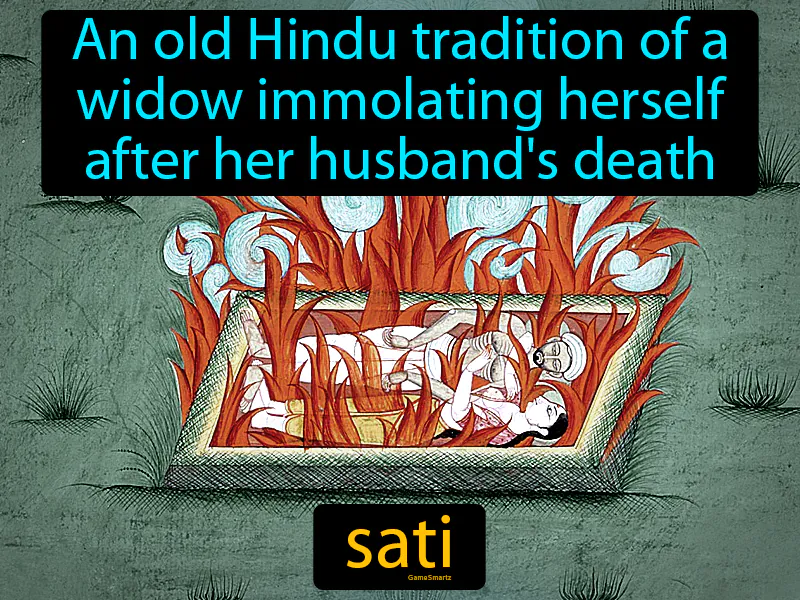Sati
Sati:
Sati was a practice in which a widow would burn herself on her husband's funeral pyre, seen as an act of devotion and loyalty in some Hindu communities. During the era of New Imperialism (1800-1915), British colonial rulers in India viewed sati as barbaric and used it to justify their rule and the imposition of Western moral standards. The British eventually banned sati in 1829, arguing it was a step toward civilizing Indian society, but this also highlighted the tension between cultural practices and colonial control. Today, the concept of sati is important as it reminds us of the struggles for women's rights and the impact of cultural practices on gender equality. By understanding sati's history, people can better recognize and challenge harmful traditions and promote gender equality, much like how communities today work to end practices like child marriage.

Practice Version

Sati: An old Hindu tradition of a widow immolating herself after her husband's death. Sati is a historical practice in which a widow was expected to self-immolate on her husband's funeral pyre.
